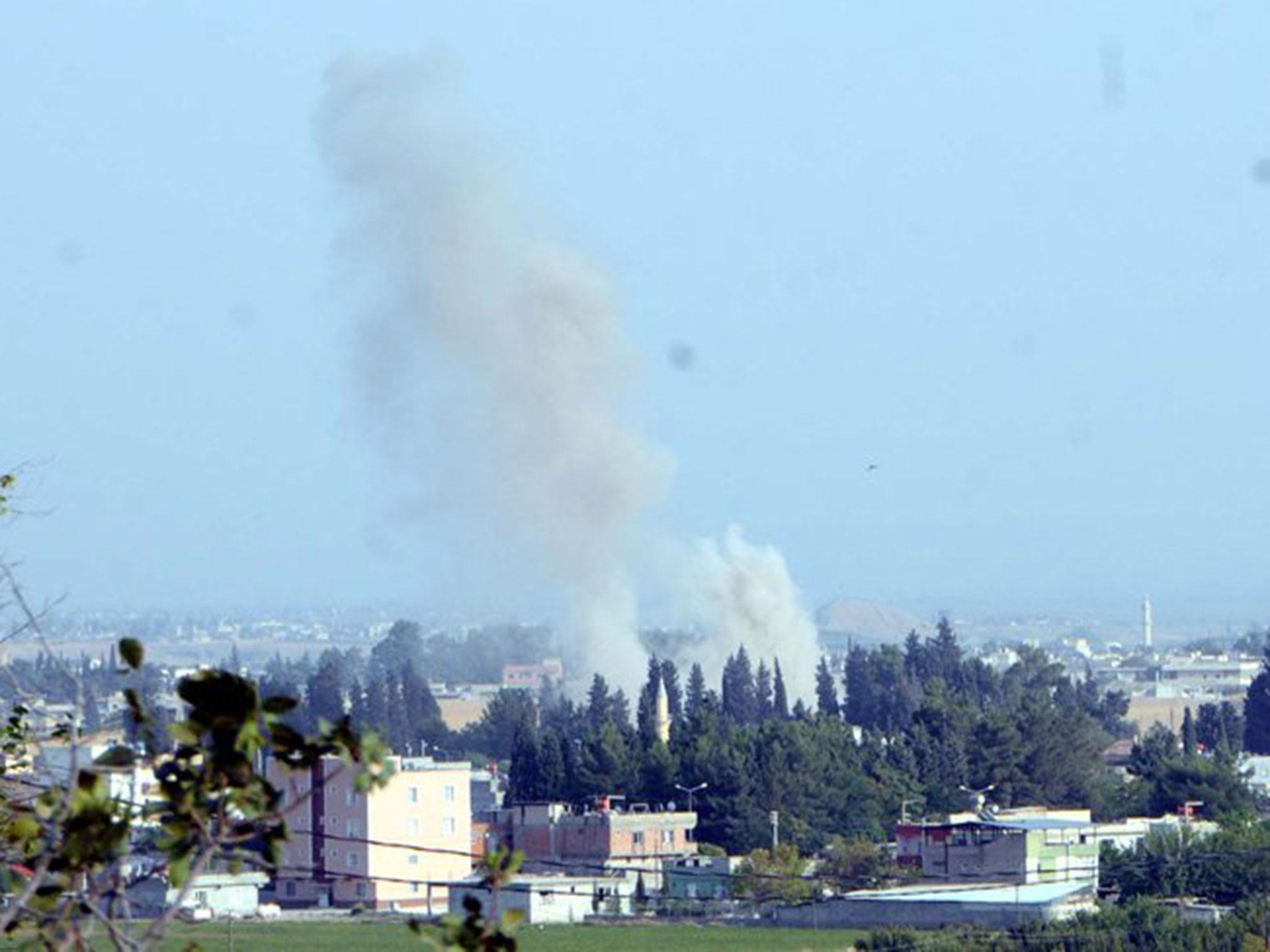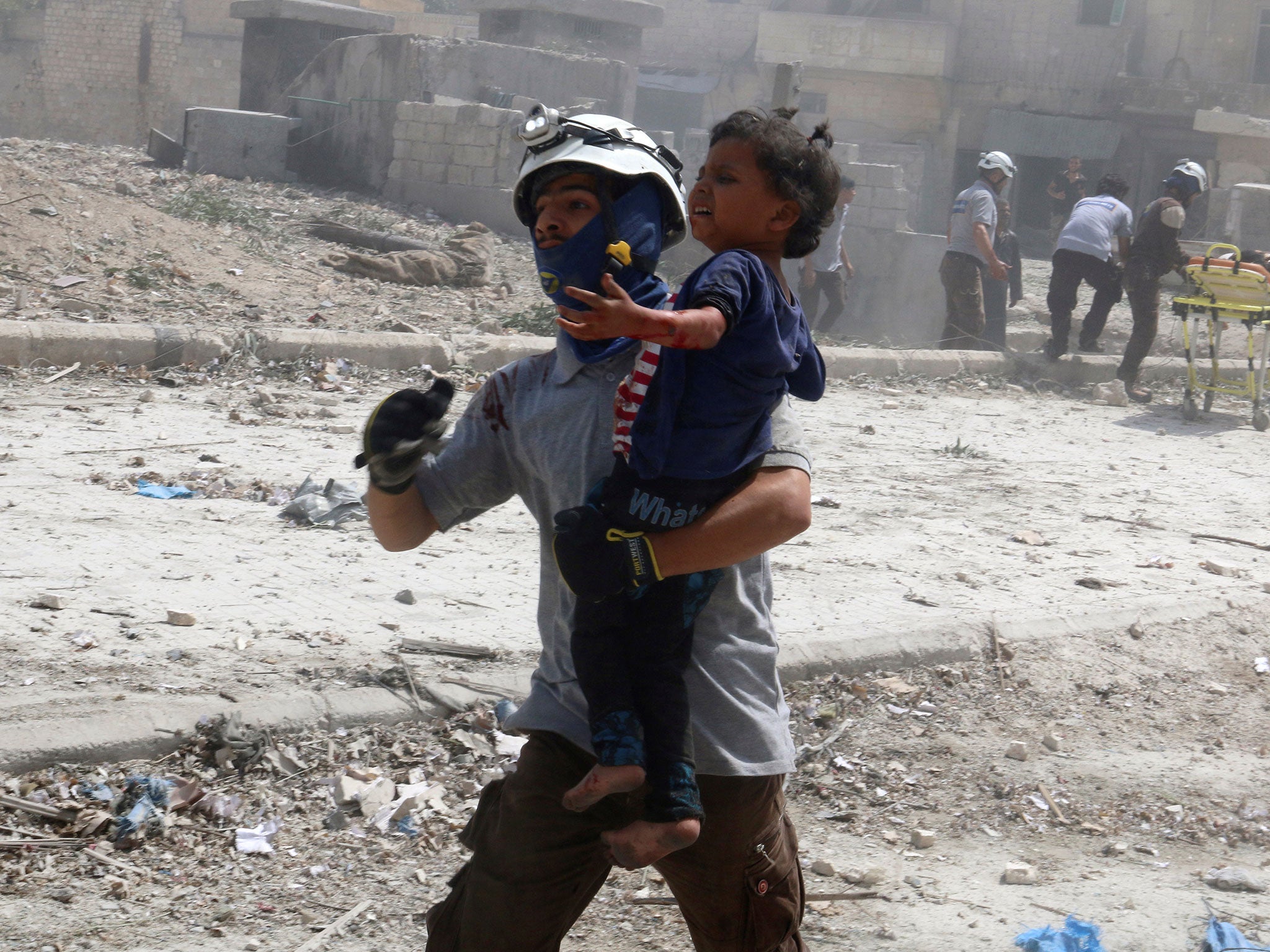Syrian war: Turkish fighter jets bomb rebels backed by the US-led coalition amid battles for territory near Jarablus
Several members of the Syrian Democratic Forces have been captured and killed

Your support helps us to tell the story
From reproductive rights to climate change to Big Tech, The Independent is on the ground when the story is developing. Whether it's investigating the financials of Elon Musk's pro-Trump PAC or producing our latest documentary, 'The A Word', which shines a light on the American women fighting for reproductive rights, we know how important it is to parse out the facts from the messaging.
At such a critical moment in US history, we need reporters on the ground. Your donation allows us to keep sending journalists to speak to both sides of the story.
The Independent is trusted by Americans across the entire political spectrum. And unlike many other quality news outlets, we choose not to lock Americans out of our reporting and analysis with paywalls. We believe quality journalism should be available to everyone, paid for by those who can afford it.
Your support makes all the difference.Turkish forces have bombed opposition groups backed by the US-led coalition as an operation to drive Isis and Kurdish rebels out of northern Syria continues.
Free Syrian Army (FSA) rebels deployed by Turkey battled coalition-supported Syrian Democratic Forces (SDF) for territory south of the city of Jarablus on Saturday.
The SDF’s Jarablus Military Council said air strikes struck homes and killed civilians in the village of al-Amarneh, calling it “a dangerous escalation that threatens the fate of the region.”
A statement said its forces had not approached the border area to avoid clashes with Turkish-allied forces, adding: “If they do not attack our forces, then we will keep the border strip secure”.
Officials from Turkey’s Euphrates Shield released a photo showing smoke rising from the bombed location but said fighter jets were targeting positions held by the Kurdish People’s Protection Units (YPG).
The fighters are key allies of the US-led coalition after a successfully driving Isis out of swathes of northern Syria but are regarded as terrorists by Turkey.
As part of a deal struck between American and Turkish officials last week, Kurdish militants were told to pull back to the east of the Euphrates River but it was unclear whether all factions would obey the order.
Turkish officials the FSA took five villages near Jarablus on Saturday. The Nour al-Din al-Zenki movement, whose fighters decapitated a child on video in Aleppo last month, announced the seizure of al-Amarneh from the SDF on Saturday.
Faylaq al-Sham, another Islamist rebel group in the Turkish alliance, said it captured two SDF fighters, whose fate remains unknown, during clashes in the village of Yusuf Bek.
There were reports of several SDF fighters being killed in the battles, less than 10 miles south of the Turkish border.
It followed unconfirmed allegations by Kurdish rebels and media that the FSA had used chemical weapons in the village of Dandaniyah on Friday.
A statement was released from Euphrates Shield’s official social media accounts denying reports of civilian casualties and condemning “false news and fake images being spread by members of terrorist organisations”.
President Recep Tayyip Erdogan launched the offensive late on Tuesday evening, saying it aimed to clear all “threats” from border regions and drive Isis out of the strategic city of Jarablus.
But FSA rebels sent into Syria with support from Turkish tanks, jets and special forces, arrived to find it deserted by militants who had already pulled out and the focus swiftly moved to Kurdish rebels.
Fikri Isik, the Turkish defence minister, said Turkey would not let the YPG and its allies join up Kurdish territory in north-east and north-west Syria.
“Isis should be completely cleansed, this is an absolute must. But it's not enough for us…the PYD and the YPG militia should not replace Islamic State there,” he added.
The SDF had previously advanced to within a mile of Jarablus after driving Isis out of swathes of northern Syria in recent months, including the key city of Manbij.
But Turkey has been alarmed by the alliance’s success, enabling Kurdish groups to control of land stretching almost the entire length of the Syrian border.
Despite being regarded as valuable allies of the US-led coalition, Mr Erdogan has called the fighters “terrorists” and linked them with the separatist PKK group, which is fighting an insurgency in south-eastern Turkey.
It is Turkey's first major military operation since a failed coup last month that caused thousands of members of its armed forces to be discharged amid international concern over wide-ranging purges.
It comes amid continued fighting and bombardment elsewhere in Syria, with at least 15 civilians reported killed by suspected barrel bombings in rebel-controlled Aleppo.
The explosions reportedly hit mourners gathering to pay their respects to 11 children who died in air strikes in the same district just two days before.
Battles raged between regime troops and a coalition of Islamist militias led by the former al-Qaeda affiliate Jabhat al-Nusra, who are trying maintain a corridor between opposition areas and the rest of Aleppo province after rebels broke the siege of the city.
Pressure for a lasting ceasefire between all parties in has increased following air strikes that injured Omran Daqneesh and killed his brother, with photos of the Syrian boy sitting dazed and covered in blood provoking horror around the world.

The United States and Russia held talks on Friday aiming to agree a new cessation of hostilities but did not achieve a resolution.
The US is leading a coalition including Britain and more than a dozen other nations that are targeting Isis with air strikes and backing rebels fighting the terrorist group on the ground.
Russia, alongside Iran and China, is supporting President Assad and follows the Syrian government’s designation of all opposition groups as “terrorists”.
John Kerry, the US Secretary of State, said he and the Russian foreign minister Sergei Lavrov had established a “path forward” after nine hours of discussion in Geneva.
“We don't want to have a deal for the sake of the deal,” Mr Kerry said. “We want to have something done that is effective and that works for the people of Syria, that makes the region more stable and secure, and that brings us to the table here in Geneva to find a political solution.”
The discussions were held as rebels and civilians were evacuated from the Damascus suburb of Daraya by regime forces, effectively surrendering it to the government after a gruelling four-year siege.
The UN warned that the “world was watching” as thousands of people were transported in buses to other rebel-controlled areas of Syria, while humanitarian groups expressed concern for their safety.
Join our commenting forum
Join thought-provoking conversations, follow other Independent readers and see their replies
Comments